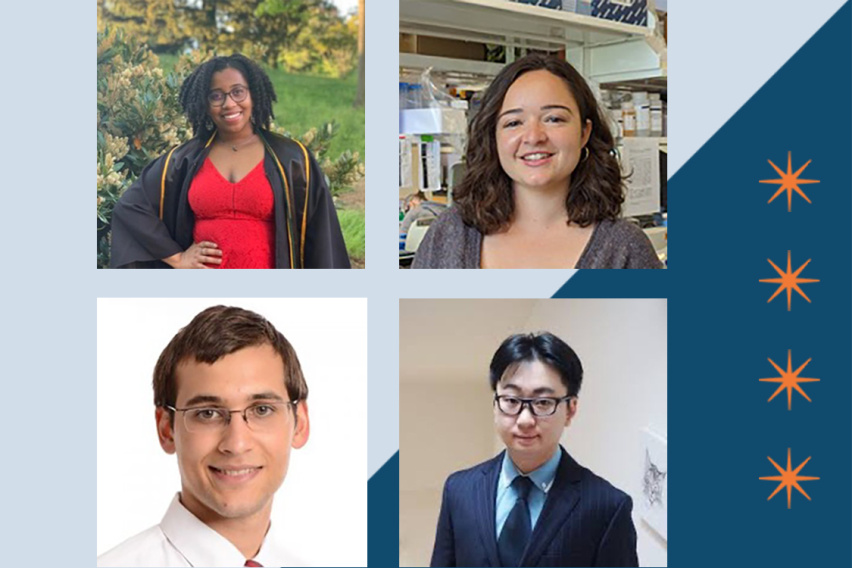MIT Koch Institute
November 20, 2024
The Koch Institute is pleased to announce the 2024-2025 class of Convergence Scholars. Founded in 2017, the program is designed to enhance the career development of aspiring independent scientists with diverse interests across academia, industry, science communication, and STEM outreach.
This year's scholars are Amy Lee (Langer/Jaklenec Lab), Jose Ortiz (Yilmaz Lab), Meaghan McGeary (Jacks Lab), Ranjan Mishra (Weinberg Lab), Yuang Chen (Anderson Lab), and Zhengpeng (Jason) Wan (Kamm Lab).
